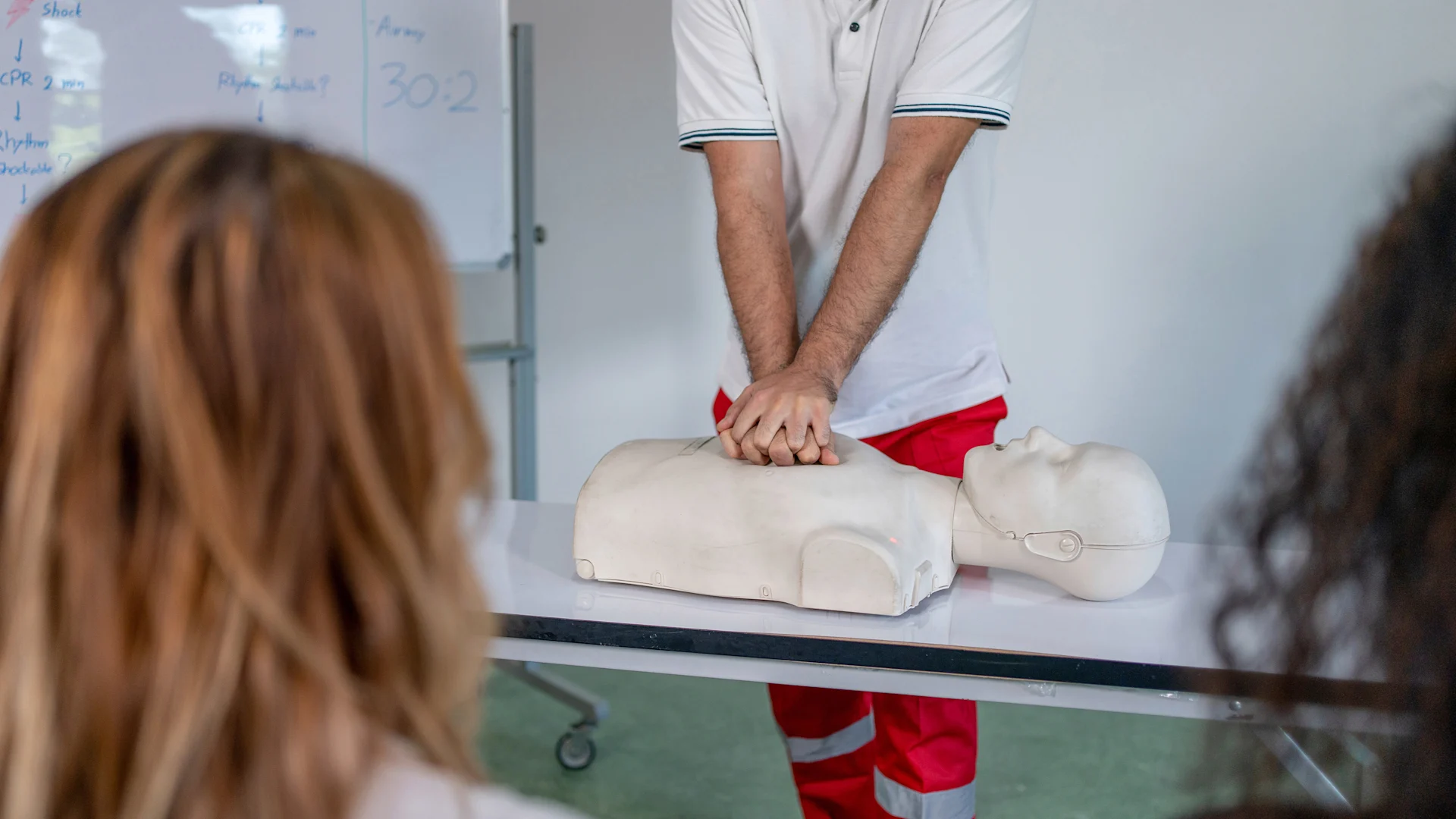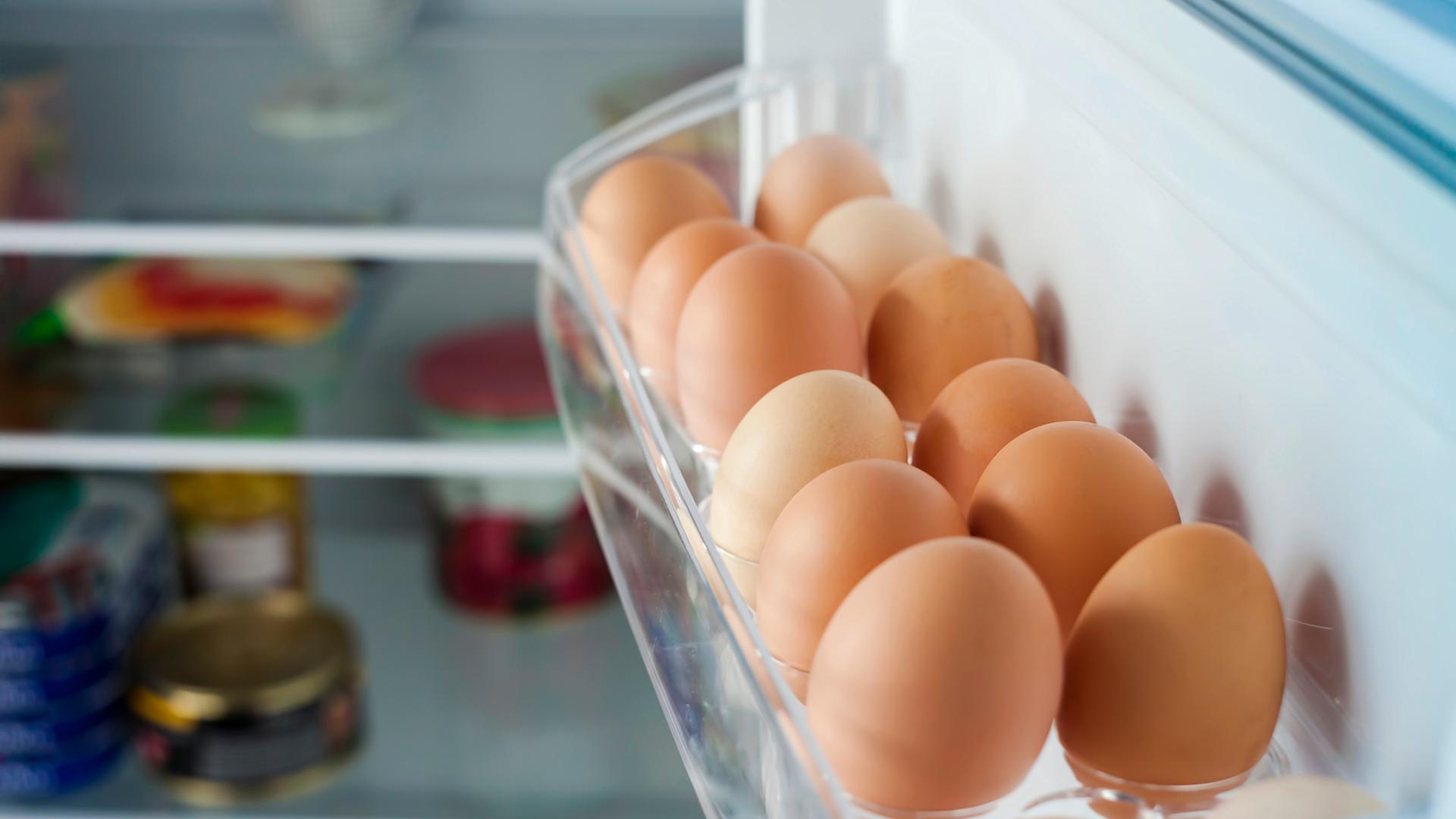
Migros Club School
Put your first aid knowledge to the test
What should you do first at the scene of an accident and how can you help someone having an epileptic fit?
navigation

Food waste
What's almost as important as the question about whether the chicken or the egg came first? Whether you should store eggs in the fridge. And what happens to male chicks? We provide answers.
The correct way to store eggs isn't exactly rocket science. It fact it's relatively simply: eggs are most at ease upside-down. In other words, the pointed end should face downwards. That’s because eggs have a pocket of air at the blunt end. If this chamber is at the bottom, the air rises over time. This can cause the egg membrane to break down, making it easier for bacteria to penetrate. The pointed end should face downwards so that the yolk lies on the egg white rather than the air chamber - thus keeping the egg fresh for longer.
Both options are fine, but not at all times: eggs have natural protection for 21 days after they are laid. A chick would grow if the hen sat on the egg during this period. Cool temperatures can damage this protective layer, making it easier for bacteria to penetrate the egg. That’s why eggs aren't kept in refrigerated cabinets at Migros and why you can store them at room temperature at home. The important thing is that they aren’t exposed to direct sunlight. After this three-week period, eggs should be kept in the fridge. Nevertheless, the are best kept in the fridge door as they don’t fare well if the temperature is too low. It’s not a good idea to put eggs next to strong-smelling foods, such as cheese, because foreign aromas can penetrate the thin shell.
Eggs cooked at home should be eaten within five days. That’s because the shell loses its natural protective properties in boiling water. Hard-boiled eggs should therefore be stored in the fridge. It’s different with boiled eggs from Migros, which have a 40-day shelf life. That’s because they’re dyed, which closes the pores in the egg shells, preventing bacteria from penetrating.
The dark ring around the egg yolk is iron sulphide – a compound that can form during and after cooking when iron from the yolk and hydrogen sulphide from the egg white come together; however, the eggs are still safe to eat even if they have this ring.
As is well known, only hens lay eggs – up to 300 per year. This raises the question of what actually happens to the male chicks. Even now, they are still picked out and killed during rearing, because not only are they unable to lay eggs, they also produce very little meat. Bio Suisse now wants to change this practice – the killing of male organic chicks will no longer be permitted from the beginning of 2026 onwards. The change will take place in stages. In the broiler rearing process, the brothers of the laying hens are also reared and – in the case of Migros – processed into organic chicken breast.
In the production of organic eggs, the hens live in larger barns and have access to larger pasture areas than conventionally reared laying hens. In addition, the brood size is limited to 2,000 hens.
Published 28.11.2023, revised 4.10.2024
Want to learn more about our commitment to health? Dive into our stories and discover inspiring contributions.